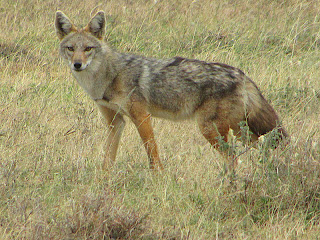The article is about The International Group for Historic Aircraft Recovery's (TIGHAR) planned trip this July to try to located the remains of Earhart's Lockheed Electra aircraft. I've written before about TIGHAR and their efforts to find enough evidence to conclude that Earhart landed, and later died on the island of Nikumaroro in the Republic of Kiribati. According to some of the commenters finding out what happened to Earhart isn't worth the effort. Some say because she was an idiot flying when she did and some say it isn't worth it because of the money. Many of the commenters are up in arms that the Navy is "backing" the project on the grounds that the economy is still down and this is a stupid thing to spend money on.
I was surprised to see the Telegraph headline, "US Navy prepares mission to solve riddle of Amelia Earhart's death" knowing that the TIGHAR expedition to find the plane was planned for this summer. When you read the Telegraph's article, you can see that the expedition they are talking about is the one by TIGHAR. Now, TIGHAR is funded by contributions not federal money. It is not getting your tax payer dollars. I know this, because I googled. Having written about them before I went back to the TIGHAR website to see what they had to say about their alleged joint mission with the Navy.
This is what I found (pulled directly from their website) bolding is mine:
"As with previous TIGHAR expeditions, funding for this search is being raise entirely through contributions from private citizens, foundations and corporations. Lockheed Marting is leaidng a growing family of corporate sponsors. TIGHAR's long-time sponsor FedEx is aboard with a major contribution in shipping services, and we are proud to announce that in addition to helping sponsor our expedition, Discovery Channel is producing a television special to air later this year documenting the search.
Underwater operations will be conducted for TIGHAR by Phoenix International, the U.S. Navy's primary contractor for deep ocean search and recovery. We'll sail from Honolulu July 2nd - the 75th anniversary of the Earhart disappearance. TIGHAR is deeply appreciative of the expressions of support voiced by Secretary Clinton, Secretary LaHood, Secretary Lambourne, Assistant Secretary Campbell, and Dr. Ballard."The U.S. Navy is not paying for TIGHAR's expedition to try to locate Earhart's plane. They say it themselves on their website, they are funded by private and corporate donations. The announcement by the State Department that they support and are backing the expedition is just that - a statement. The terms "support" and "backing" automatically make one think money. I thought money when I read the Telegraph's headline and article. But in this case "support" and "backing" comes in the form of verbal acknowledgement and a few nice press pictures, not oodles of taxpayer dollars. It also probably helped get Phoenix International onboard to do the actual mapping/search, but they are going to be paid out of TIGHAR's coffers.
Still, Earhart is just a stupid woman got herself killed by taking off on a poorly planned trip right? Even if all those commenters up in arms about their money going to something they think is silly have been mislead by the article there are still those that think Earhart doesn't matter. I like the idea of going out there to try to figure out what really happened to Earhart because there is historic and social value to knowing how her story ended. She is an important figure in aviation history, women's history, and United States history. She mattered. She mattered in her time, and for girls like me who read about her in books and start to believe that they can truly do anything with their life she still matters.
It isn't a secret that I find Earhart inspiring. I've posted about her twice before this. Seeing her called dumb and foolish for trying to fly around the world annoys me. She took a risk, and she paid for it with her life. You mean to tell me no man has ever done that? She knew she could fail in her journey. She took off anyway. Was it a good choice? No. She made a bad choice, but the key word there is choice. She was a female aviator in the 1930's who took her own life in her hands, she made choices. I admire Earhart because she lived her life in a way that gave her the ability to choose for herself. So I do support TIGHAR's effort to find the plane and some conclusive evidence about what happened to her. I'm glad the State Department supports it too. I'm also glad that the funding is private, I think that is how it should be. Shame on the Telegraph for printing something so misleading.
If all I had to do was go to the TIGHAR website to find out how the State Department and Navy were involved in the expedition, there is no reason the Telegraph shouldn't have done the same. Rather than making this a story about Earhart, the Telegraph article made this a story about government spending and waste. That isn't the story at all. I would much rather have seen some real coverage of Earhart - the good and the bad - leading up to the 75th anniversary of her disappearance.



















